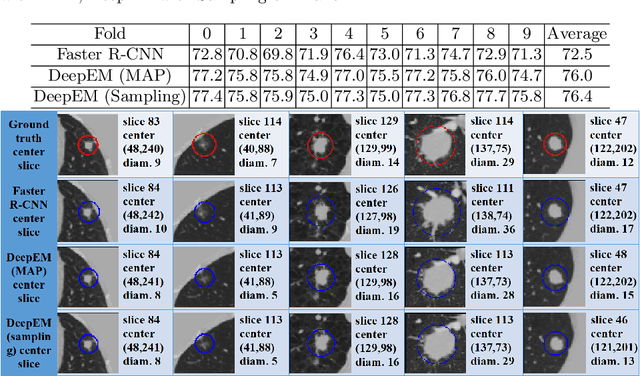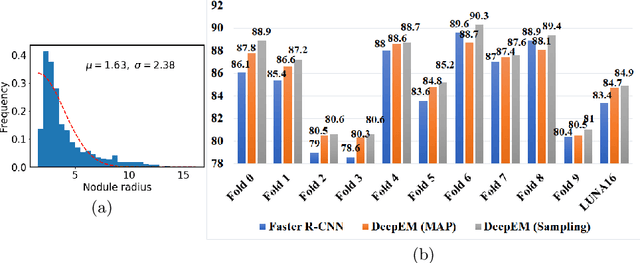Yeeleng S. Vang
A Combined Deep Learning-Gradient Boosting Machine Framework for Fluid Intelligence Prediction
Oct 16, 2019



Abstract:The ABCD Neurocognitive Prediction Challenge is a community driven competition asking competitors to develop algorithms to predict fluid intelligence score from T1-w MRIs. In this work, we propose a deep learning combined with gradient boosting machine framework to solve this task. We train a convolutional neural network to compress the high dimensional MRI data and learn meaningful image features by predicting the 123 continuous-valued derived data provided with each MRI. These extracted features are then used to train a gradient boosting machine that predicts the residualized fluid intelligence score. Our approach achieved mean square error (MSE) scores of 18.4374, 68.7868, and 96.1806 for the training, validation, and test set respectively.
* Challenge in Adolescent Brain Cognitive Development Neurocognitive Prediction
DeepEM: Deep 3D ConvNets With EM For Weakly Supervised Pulmonary Nodule Detection
May 26, 2018


Abstract:Recently deep learning has been witnessing widespread adoption in various medical image applications. However, training complex deep neural nets requires large-scale datasets labeled with ground truth, which are often unavailable in many medical image domains. For instance, to train a deep neural net to detect pulmonary nodules in lung computed tomography (CT) images, current practice is to manually label nodule locations and sizes in many CT images to construct a sufficiently large training dataset, which is costly and difficult to scale. On the other hand, electronic medical records (EMR) contain plenty of partial information on the content of each medical image. In this work, we explore how to tap this vast, but currently unexplored data source to improve pulmonary nodule detection. We propose DeepEM, a novel deep 3D ConvNet framework augmented with expectation-maximization (EM), to mine weakly supervised labels in EMRs for pulmonary nodule detection. Experimental results show that DeepEM can lead to 1.5\% and 3.9\% average improvement in free-response receiver operating characteristic (FROC) scores on LUNA16 and Tianchi datasets, respectively, demonstrating the utility of incomplete information in EMRs for improving deep learning algorithms.\footnote{https://github.com/uci-cbcl/DeepEM-for-Weakly-Supervised-Detection.git}
Deep Learning Framework for Multi-class Breast Cancer Histology Image Classification
Feb 03, 2018



Abstract:In this work, we present a deep learning framework for multi-class breast cancer image classification as our submission to the International Conference on Image Analysis and Recognition (ICIAR) 2018 Grand Challenge on BreAst Cancer Histology images (BACH). As these histology images are too large to fit into GPU memory, we first propose using Inception V3 to perform patch level classification. The patch level predictions are then passed through an ensemble fusion framework involving majority voting, gradient boosting machine (GBM), and logistic regression to obtain the image level prediction. We improve the sensitivity of the Normal and Benign predicted classes by designing a Dual Path Network (DPN) to be used as a feature extractor where these extracted features are further sent to a second layer of ensemble prediction fusion using GBM, logistic regression, and support vector machine (SVM) to refine predictions. Experimental results demonstrate our framework shows a 12.5$\%$ improvement over the state-of-the-art model.
 Add to Chrome
Add to Chrome Add to Firefox
Add to Firefox Add to Edge
Add to Edge